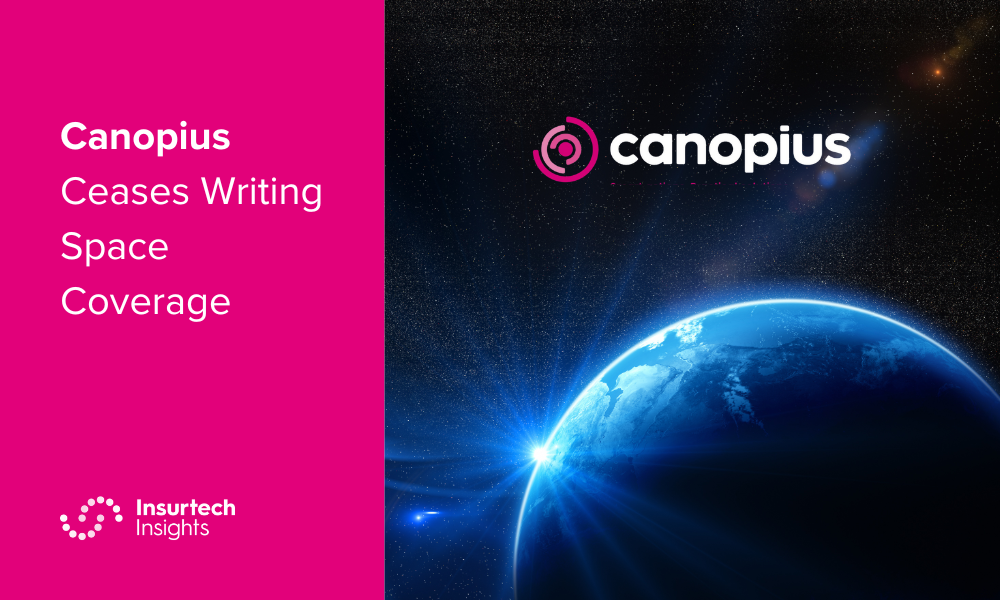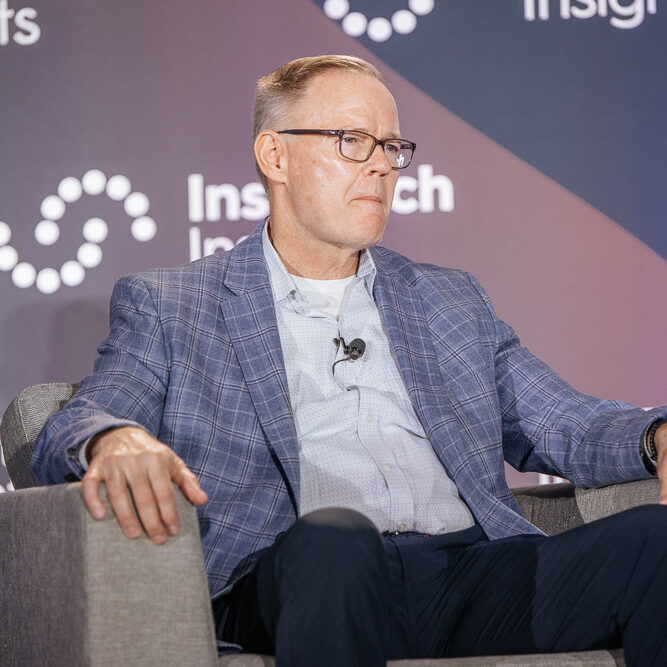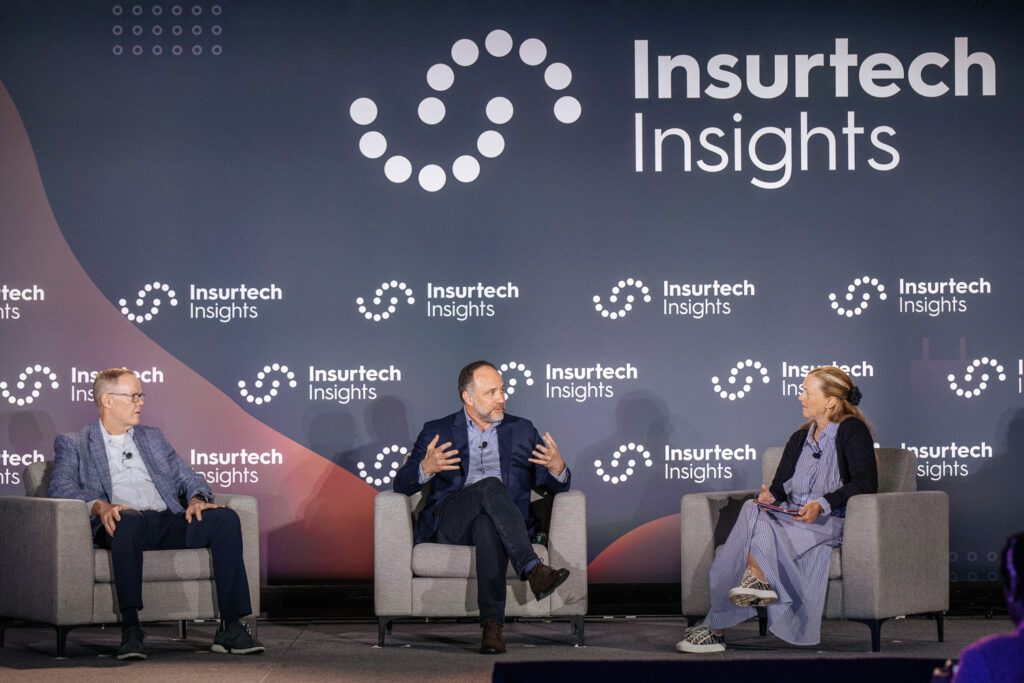SCOR leaders recently took to the stage at Insurtech Insights USA 2024 in New York 2024, to discuss the impact of AI and digital transformation of the reinsurance space.
In a session moderated by Lisa Wardlaw – CEO and Founder of 360 Digital Immersion, J.C. Brueckner – CEO and President of US Life and Health and Nicholas Berg, Head of P&C North America CEO, SCOR US, unpicked the main challenges facing the industry, and said that a slow and steady adoption, rather than a rushed attempt to transform and update, would be the best approach for the space.

Generative AI and integration
Responding to a question regarding the hype around ChatGPT and generative AI, Berg explained that in underwriting P&C risk, understanding the underlying exposure is key. He pointed out that as AI becomes more prevalent across various industries, determining liability becomes complex and noted that reinsurance leaders need to consider who is responsible if something goes wrong — whether it’s the operating company, the AI software provider, or other parties like cloud providers.
“I think it’s going to reshape a lot of the landscape of liability for our industry and we need to understand that it’s a great opportunity to learn with our clients,” he said, noting that the challenge is the perception that AI will simplify everything when it often creates a new normal that is more complex. “When we think about underwriting P&C risk, we need to really understand the underlying exposure. With AI becoming integrated into a lot of our clients’ industries, it’s going to be interesting to understand who makes the decision.”
Berg said the deployment of new AI systems called for greater liability considerations because it often raises new questions. “What’s the new liability landscape when it comes to ai? Is it with the operating company? If there is a loss, is it with the AI software company? Is it with other players in that chain, the cloud provider for example, if there’s downtime?” he questioned.
“AI is going to speed up that aggregated view of different scenarios and we’ll be much more dynamic in reacting to those potential scenarios.”
Nicholas Berg
Responding with regards to the Life and Health space, J.C Brueckner advised the measured approach, saying that although the insurance industry is often criticised for being slow to adopt innovations, the role of AI and its scope for disruption, requires a measured, rather than rushed implementation.
He said: “We’re [the insurance industry] slow to move, but there’s nothing wrong with that. I think we need to be cautious with this as well. So I think the conversation certainly has changed. Looking at practical ways to augment decision making processes, expedite decision making processes. I think there’s a lot of activity around that. I think the difference between life and property and casualty, is that there’s a lot more data globally available that’s standardised as opposed to the Life industry, particularly from a reinsurance perspective.
“We get all different kinds of data from all different markets. No markets are really the same. I think you can utilise global data on catastrophes and things like that that probably are more effective than you can on the life side. We still have work to do in terms of cleaning up and securing our data before we really start moving forward with AI. But we are like many, we’re sinking our toes in the water.”
Identifying new risk via AI
Regarding the use of technology to analyse and identify new and emerging risks that are not evident in historical data, Berg called AI a game changer because of its impact on scenario planning and said It will significantly accelerate the industry’s ability to assess global and regional impacts across various industries.
“I think you have to have some common sense and look at what the data is telling you because there’s so many variables… It’s a guessing game in some ways. Sometimes you guess right, and sometimes you guess wrong.”
J.C. Brueckner
He pointed out that current models are limited in their ability to make such broad extrapolations and that AI will enhance the capacity to aggregate and analyse different scenarios more dynamically, allowing the industry—both reinsurers and their clients—to better position their portfolios.
He said: “AI is going to speed up that aggregated view of different scenarios and we’ll be much more dynamic in reacting to those potential scenarios. I think it’s going to empower the industry, not only reinsurance, but our clients, to be much more savvy about how to position the portfolios as a result of having this almost real time scenario planning capability.”
Breuckner agreed, noting that while AI may help forecast trends, such as future mortality improvements or medical advancements, it cannot fully predict unknown variables. Rather, effective AI use requires a blend of reliable data and human judgement to navigate uncertainties and make informed decisions.
He said: “I think you have to have some common sense and look at what the data is telling you because there’s so many variables… It’s a guessing game in some ways. Sometimes you guess right, and sometimes you guess wrong. But I do think at some point, once we clean up our data, that will be a useful input into evaluating trends and seeing where we’re going.”

Connecting customers, tools and services
Breuckner went on to say that reinsurers have the opportunity to help explore these innovations and share valuable insights with their clients, noting that since individual companies may not be able to investigate every new development on their own, reinsurers can play a crucial role in connecting them with new tools and services that improve policyholder engagement.
Commenting that AI, in particular, offers significant potential for transforming customer interactions, shifting from traditional product sales to creating more personalised and meaningful experiences, Breuckner said that by leveraging AI, reinsurers can help clients better understand individual needs and incorporate these insights into their broader engagement strategies.
He concluded: “As AI develops going forward, if it’s going to be used in the process to make decisions, I think we’re going to have concerns. But if we can look at and understand how it’s getting information in front of somebody to make a decision, at least for the short run, I think that’ll be the right use.”
Reporting by Joanna England










